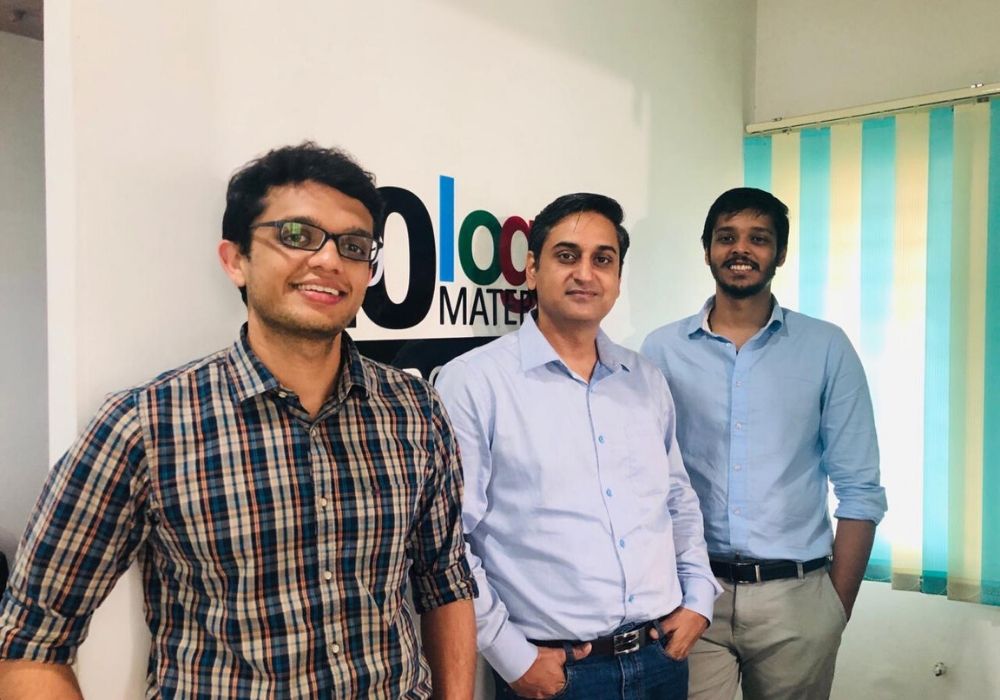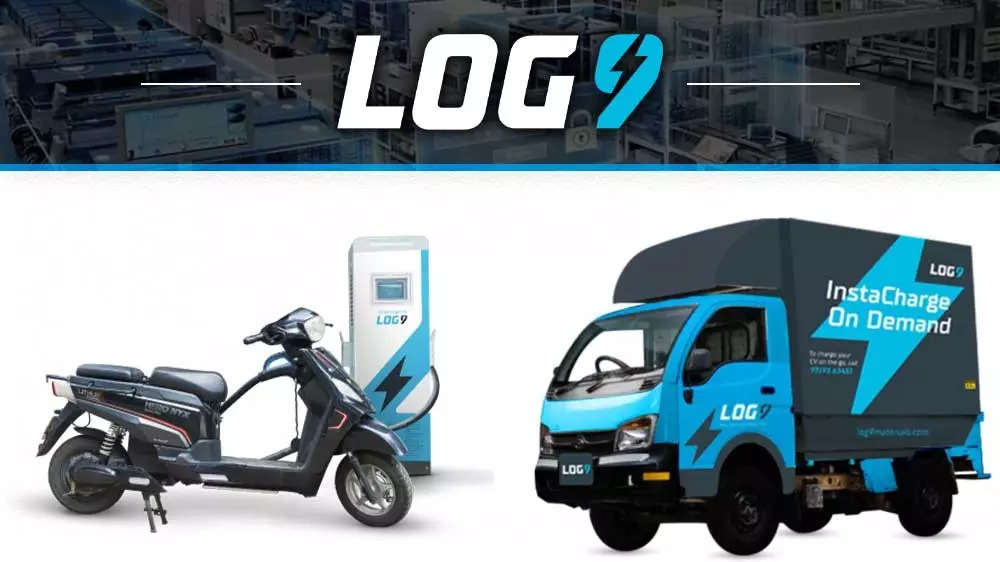Log9 Materials is aiding India's EV industry in becoming self-sustaining

A collection of brief articles titled "The Turning Point" focuses on the crucial moment when businesspeople come up with their breakthrough concept. This week, we highlight Bengaluru-based Log9 Materials, which produces lithium-titanium oxide batteries for EVs and finance climate tech startups.
In order to make our nation self-sufficient and sustainable, Log 9 Materials, a deep tech battery startup, believes that material science can make all the difference. The company is producing lithium-titanium oxide batteries with this conviction in mind for the nation's EV (electric vehicle) market. The Bengaluru-based business initially produced graphene-enhanced goods for use in a variety of industries, including oil, smoke, and air filters. The business's major achievement occurred in 2019 when it chose to enter the EV market with its RapidX range of batteries.

Log9 naturally diversified into a space with great scope and promise, given its strong foundation in material science and interest in innovation.
The fight against climate change and achieving energy independence for India have always been priorities of ours.
As a result, we began R&D in battery technology and manufacturing, stepping into the EV space," says Pankaj Sharma, Co-founder and Director of Log9 Materials.
Solutions for batteries and energy
In 2019, the startup began experimenting with advanced battery technology and created an EV battery testing pack. One year later, it introduced the RapidX line of 'incredibly quickly chargering' batteries designed in India for India and the tropical belt. Log9 wishes that RapidX will reshape the country's EV sector, which is heavily reliant on imports to meet demand. According to the company, its batteries can operate in a variety of climatic conditions and at extreme temperatures ranging from -40 to 65 degrees Celsius.
As per Sharma, RapidX batteries are evaluated for reliability and safety to decrease the probability of fires. "We ensure better performance and safety, even in diverse tropical climatic conditions, with IoT-enabled telematics and a battery management system," he says. According to the company, its batteries last nine times longer than other batteries and can be charged in under 15 minutes for two-wheelers and 35-40 minutes for three- and four-wheelers. According to Sharma, the batteries are also long-lasting, lasting more than 15 years.
The batteries are manufactured with lithium-ion cells manufactured at the company's Jakkuru building in Bengaluru. Umicore Autocat Pvt Ltd, a chemical manufacturing company based in Maharashtra, supplies lithium to the startup.
In collaboration with leading OEMs such as JMT, Hero Electric (for two-wheelers), Omega Seiki Mobility, Grevol, 3eco (three-wheelers), and Northway, Log9 has commercialised over 3,000 batteries to date (four-wheelers). Pilot programmes have also been launched in South Africa, Kenya, Nepal, Bangladesh, and Indonesia.
Sun Mobility (EV energy infrastructure firm), Jio-bp (EV charging and battery swapping infrastructure), Exponent (EV rapid charging startup), and Nexcharge are among the competitors (lithium-ion battery packs). Log9, in addition to mobility solutions, offers stationary energy storage systems under the brand name ZappUp, which are also based on lithium-titanate-oxide chemistry. They have applications in residential, industrial, and commercial settings.
Recycling of lithium-ion batteries
Log9 has partnered with Metastable Materials, a Bengaluru-based startup with patented lithium-ion recycling technology, to reduce the carbon footprint of its batteries. According to Sharma, the technology aids in the extraction of a wide range of materials from batteries, with a survival rate of more than 90%. He claims that India has an abundance of old lithium-ion batteries in the ecosystem, which will only grow exponentially over the next decade. "These batteries contain a significant repository of lithium, which, if recycled, can meet more than half of all EV demand." "Log9 is dedicated to urban resource extraction key components used in lithium-ion cells, which will propel us closer to indigenizing lithium-ion cell manufacturing in India," he says.
Additional initiatives
To help people use EVs without the burden of upfront payment, the company has also launched BaaS (battery-as-a-service) and MaaS (mobility-as-a-service) concepts. While the BaaS concept allows customers to lease Log9 batteries, the MaaS service allows them to purchase EVs powered by Log9 through partnerships with leading OEMs across the country. With its investments in companies fighting climate change and addressing energy infrastructure challenges, the startup is also leading other changes in climatetech. Log9 invested in Bengaluru-based deeptech startup Chara Technologies last month. The three Log9 founders have individually invested in climatetech firm Climes, urban mining startup Metastable Materials, deeptech startup Praan, agri-biotech firm Loopworm, and drone logistics service provider TSaw.

Planning and funding
Log9 has reached a revenue rate of $20 million a year after entering the EV firm. Amara Raja Batteries and Petronas Ventures (Malaysia) led the $40 million Series B funding round, which was supported by Incred Financial Services, Unity Small Finance Bank, Oxyzo Financial Services, and Western Capital Advisors. Since its inception, it has raised $65 million.
Log9 intends to use the new funds to increase its battery manufacturing capacity from 250 MWh to 2 GWh by the end of 2024, as well as to launch India's first fully integrated lithium-ion cell production line. Over Rs 100 crore will be invested in cell and battery technology stack advancements. The company, which is backed by venture capital firms Sequoia and Exfinity Ventures, as well as strategic investors Amara Raja Batteries and Petronas, aspires to be a significant name in the clean mobility and energy sectors throughout all tropical countries by the next decade.

























